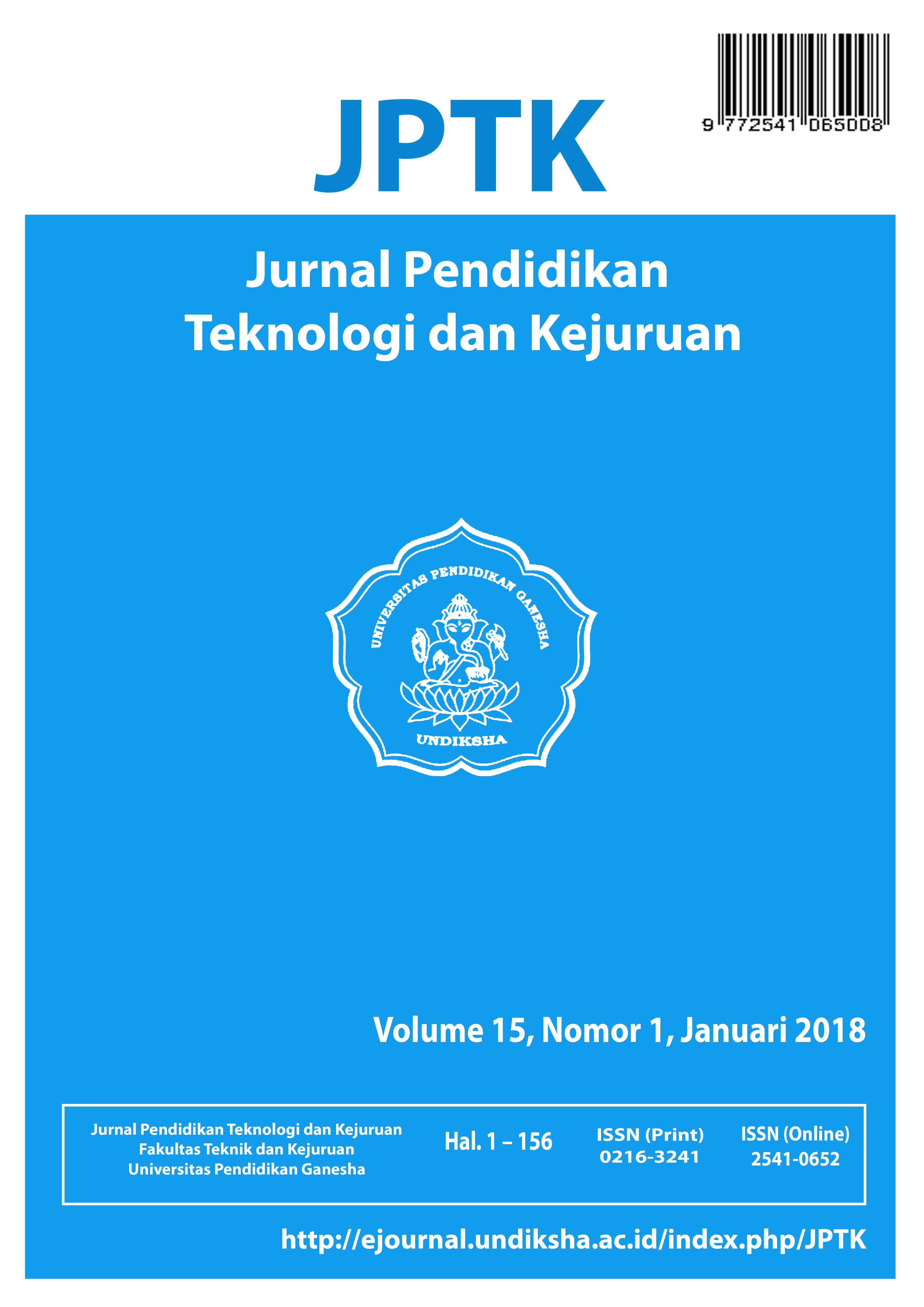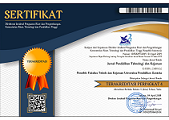EVALUASI USABILITY PADA ASPEK SATISFACTION MENGGUNAKAN TEKNIK KUESIONER PADA SISTEM LMS PROGRAM KEAHLIAN GANDA
DOI:
https://doi.org/10.23887/jptk-undiksha.v15i1.13028Abstract
Abstrak
Kementerian Pendidikan dan Kebudayaan melaksanakan program yang disebut dengan Program Keahlian Ganda yang bertujuan untuk melakukan penataan dan pemenuhan guru produktif di SMK untuk mendukung peningkatan kualitas pendidikan vokasi serta pendidikan dan pelatihan keterampilan kerja. Program ini dilaksanakan selama 12 bulan melalui beberapa tahapan yaitu: 1) belajar mandiri terbimbing yang dilaksanakan di SMK sekolah tempat guru mengajar (On-Service Training), 2) pendidikan dan pelatihan (In-Service Training), 3) magang kerja di dunia usaha dan dunia industri (DU/DI), dan 4) diakhiri dengan sertifikasi keahlian di LSP dan sertifikasi guru dalam jabatan melalui PLPG. Untuk mendukung program tersebut khususnya dalam pelaksanaan pembelajaran daring, digunakanlah sebuah learning management system yang selanjutnya disebut LMS Program Keahlian Ganda. Penelitian ini bertujuan untuk mengevaluasi LMS Program Keahlian Ganda tersebut khususnya pada aspek usability menggunakan teknik kuesioner. Sampel dalam penelitian ini yaitu 20 orang peserta Program Keahlian Ganda. Hasil penelitian berdasarkan analisis Mann Whitney U Test dan kuesioner SUS menunjukkan pengguna merasa kurang puas menggunakan LMS Program Keahlian Ganda dilihat dari hasil perhitungan skor kuesioner SUS yang didapat sebesar 49,75 masih belum mampu melampaui standar kuesioner SUS sebesar 68.00. Berdasarkan hasil analisis data tersebut disimpulkan bahwa LMS Program Keahlian Ganda belum memiliki usability yang baik karena belum memberikan tingkat kepuasan pengguna yang baik.
Kata Kunci: evaluasi, usability, Mann Whitney U Test, SUS.
Abstract
The Ministry of Education and Culture conducts the arrangement and fulfillment of productive teachers in SMK to support the improvement of the quality of vocational education as well as education and vocational skills training. This program is implemented for 12 months through several stages: 1) self-directed guided learning conducted at SMK schools where the teacher teaches (On-Service Training), 2) education and training (In-Service Training), 3) apprenticeship in the business world and the industrial world (DU / DI); and 4) ends with certification of expertise in LSP and certification of teachers in positions through the PLPG. To support the program especially in the implementation of online learning, used a learning management system, hereinafter called LMS Dual Expertise Program. This study aims to evaluate the LMS Dual Expertise Program, especially on aspects of usability using questionnaire techniques. The sample in this research is 20 participants of Dual Expertise Program. Result of research based on analysis Mann Whitney U Test and SUS show user feel less satisfied using LMS Dual Expertise Program seen from result of calculation SUS questionnaire score obtained equal to 49,75. Based on the results of data analysis, it was concluded that LMS Dual Skills Program has not good usability because it has not provided user satisfaction level that surpassed SUSS standard questionnaire that is 68,00.
Keywords: evaluation, usability, Mann Whitney U Test, SUS.
Downloads
Published
Issue
Section
License
Authors who publish with the JPTK agree to the following terms:- Authors retain copyright and grant the journal the right of first publication with the work simultaneously licensed under a Creative Commons Attribution License (CC BY-SA 4.0) that allows others to share the work with an acknowledgment of the work's authorship and initial publication in this journal
- Authors are able to enter into separate, additional contractual arrangements for the non-exclusive distribution of the journal's published version of the work (e.g., post it to an institutional repository or publish it in a book), with an acknowledgment of its initial publication in this journal.
- Authors are permitted and encouraged to post their work online (e.g., in institutional repositories or on their website) prior to and during the submission process, as it can lead to productive exchanges, as well as earlier and greater citation of published work. (See The Effect of Open Access)












